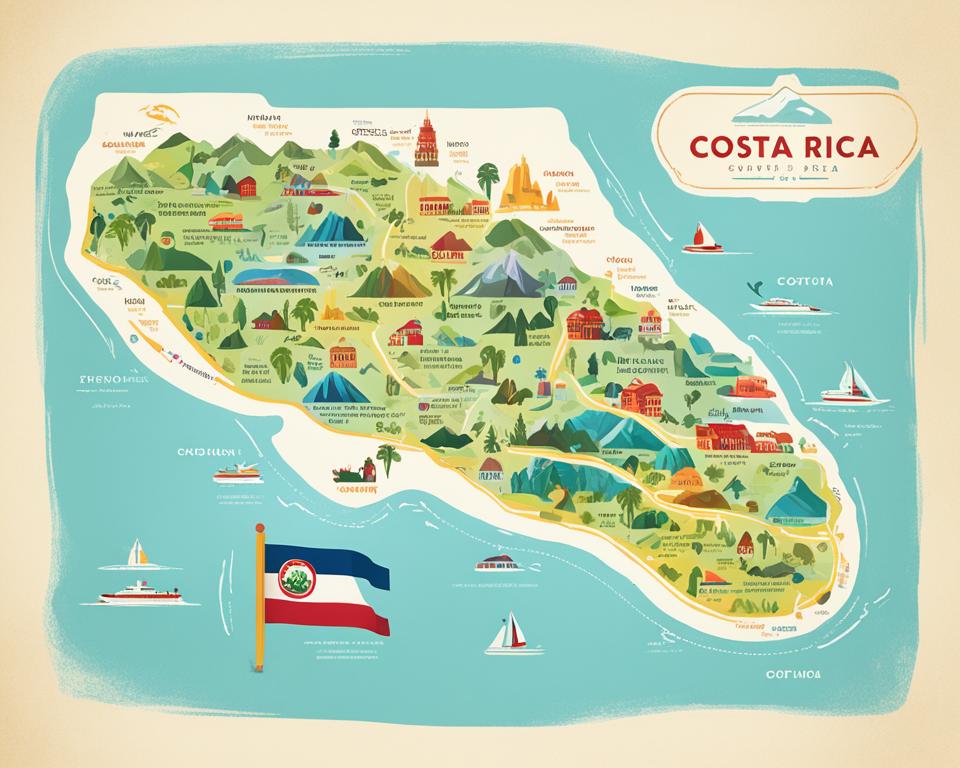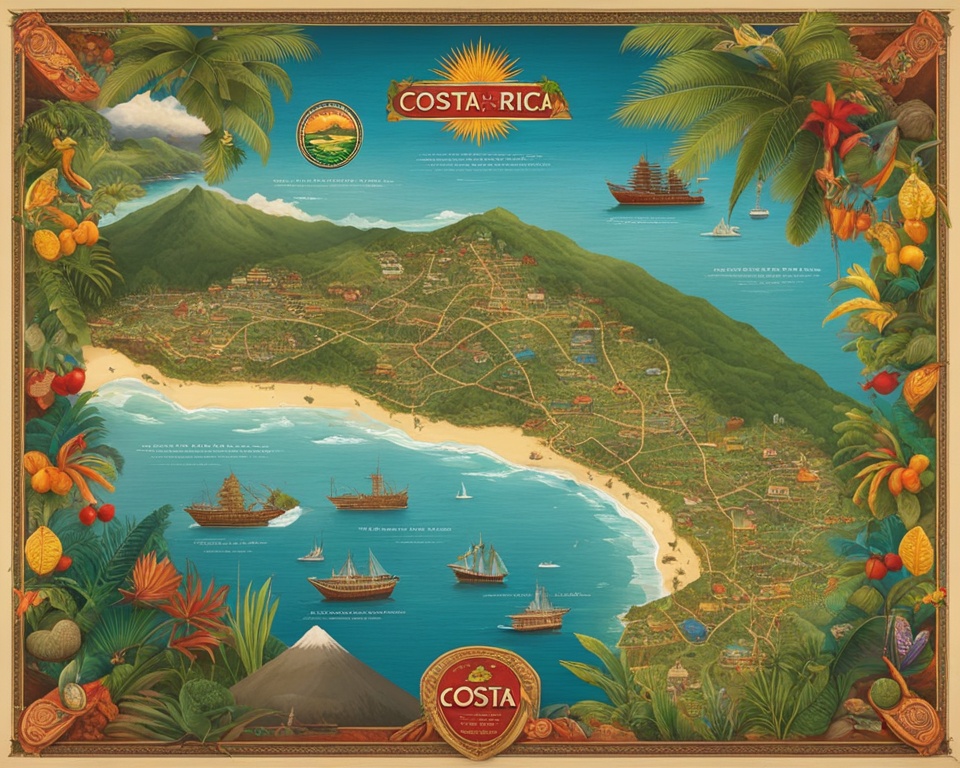Is It Hard to Get Residency in Costa Rica? Find Out How With CRIE.
Are you thinking about moving to Costa Rica? Many people wonder if it’s hard to get residency there. Getting residency in Costa Rica might seem tough, but with the right help, it can be easier.
The Costa Rica Immigration Experts (CRIE) have over 20 years of experience. They help thousands of people every year with their residency applications. CRIE knows all about the different types of residency, what documents you need, and how much money you must have. They’re here to make getting residency in Costa Rica easier for you.
This article will cover the different residency options, the challenges you might face, and how CRIE can help. You can reach out to CRIE on their website, WhatsApp, or email for personalized advice. This will help you move closer to living in Costa Rica.
Key Takeaways
- Costa Rica offers several residency options, such as Pensionado and Rentista visas.
- CRIE specializes in guiding applicants through the complex immigration process.
- Relocation involves multiple documentation requirements based on residency categories.
- A clean criminal record and proof of income are essential for applicants over 18.
- Processing times for residency applications can take up to a year.
Understanding Costa Rica’s Residency Options
Costa Rica has many residency options for different reasons. You might be thinking about retiring, working, or studying here. It’s key to know the different types of residency to follow the costa rica residency guidelines.

The Pensionado program is a top choice for retirees. You need to show you get at least $1,000 a month in pension. If you earn money without working, the Rentista program requires $2,500 a month for two years. Investors can go for the Inversionista option by putting $150,000 into property or businesses.
There are also ways to get residency through family ties or work. Each path has its own rules and documents you must have. After three years of living here, many people get permanent residency. CRIE has helped thousands of people through this process.
Applying for residency takes time and needs careful attention. You must prepare and submit all your documents correctly. It’s best to be thorough and make sure you meet all the immigration rules.
Types of Residency in Costa Rica
Costa Rica has different residency options for various needs. Knowing the difference between temporary and permanent residency helps people make better choices. Each type has its own residency requirements costa rica suited for different lifestyles and financial situations.
Temporary Residency
Temporary residency is great for students, workers, and those wanting to live in Costa Rica. It lets people stay for up to 90 days without needing formal residency. But, they must show proof of income and provide documents like criminal background checks.
Spouses of Costa Ricans can also get temporary residency, which can be renewed every year. This can turn into permanent residency if certain conditions are met.
Permanent Residency
For those wanting to stay long-term, permanent residency is the way to go. It usually requires showing you have a steady income or have invested in something valuable. Investing at least $200,000 in property or projects that benefit Costa Rica can get you permanent residency under the Inversionista category.
All applicants must also provide certain documents, like apostilled birth and marriage certificates.
Residency for Retirees
The Pensionado category is for retirees, needing proof of a monthly pension of at least $1,000. They must also put $12,000 a year into a Costa Rican bank. Rentista status is another choice for retirees, needing $2,500 a month for two years.
Both statuses need to be renewed every year. These options let retirees live comfortably in Costa Rica while fulfilling their financial needs.
Is It Hard to Get Residency in Costa Rica?
Getting residency in Costa Rica has its challenges. It’s important to know the process well for a smooth move. You’ll face issues like complex paperwork and tricky local rules, making it hard.
Common Challenges Applicants Face
Many people struggle with getting residency due to several issues, such as:
- Understanding the different types of residency and what they need.
- Collecting all the needed documents, which can be a big task.
- Dealing with delays because of missing information.
- Keeping up with changes in immigration laws.
If you’re new to the legal side, knowing these points is key. Not understanding the process can make things harder.
Assistance from Costa Rica Immigration Experts (CRIE)
Working with Costa Rica Immigration Experts (CRIE) can really help. They know the residency process inside out. They guide you through all the steps and offer tips for getting residency in costa rica. With their help, you can sort out paperwork, grasp the laws, and make sure your application is complete.

Costa Rica Residency Requirements
Getting residency in Costa Rica has many steps, needing different documents for each type of residency. It’s key to know these requirements for a smooth process.
Required Documents for Different Residency Types
What you need depends on the type of residency. Here are some common documents:
- Request Letter: A formal letter explaining why you want to live in Costa Rica.
- Proof of Income: This can be bank statements or pension documents.
- Criminal Background Check: Needed for safety checks.
- Identity Verification: You’ll need a passport or national ID.
The rentista residency needs you to show you make at least US$2,500 a month. The pensionado visa requires a pension of US$1,000 a month or more. These prove you can support yourself in Costa Rica.
Proof of Income and Financial Stability
Having stable finances is key for residency in Costa Rica. Investors must put down US$150,000 to apply. Digital Nomad Visa applicants need to show they make US$3,000 a month. These rules make sure new residents can support themselves.
It’s important to get your financial documents ready well in advance. Companies like CRIE can translate your documents, making sure they meet Costa Rican standards.

How to Apply for Residency in Costa Rica
Applying for residency in Costa Rica is a detailed process. You need to go through different stages and gather important documents. It’s key to understand the application process well for a smooth move. You’ll need to collect essential papers, fill out forms, and send your application to the immigration office.
Step-by-Step Application Process
- Determine the type of residency that fits your situation, such as Pensionado, Rentista, or Inversionista.
- Gather required documents, which typically include a copy of all passport pages, a birth certificate, and a criminal record check.
- Complete the residency application forms carefully to avoid mistakes.
- Submit the application with your documents to the Costa Rican immigration authority.
- Attend any required interviews or meetings for biometric data collection.
- Keep an eye on your application’s progress and answer any extra document requests quickly.
Submission Tips
When you’re applying for Costa Rica residency, here are some tips to keep in mind:
- Make sure all your documents are complete and correct.
- Keep copies of everything you send for your records.
- Consider using Costa Rica Immigration Experts (CRIE) to help with your application. They can make the process easier and increase your chances of success.
- Know how long the process takes, which can be several months.

Costa Rica Immigration Process and Timeline
Knowing the timelines for the Costa Rica immigration process is key for those moving there. Each type of residency has its own timeline, helping set clear expectations. The process varies for temporary and permanent residency applications.
Understanding the Approval Timeline
Temporary residency in Costa Rica can take from six months to a year for approval. This time can change based on the applicant’s situation and the residency type. Permanent residency also takes six months to a year, but you must have temporary residency for at least three years first.
During the process, you might get asked for more documents or clarification. It’s important to stay in touch with immigration officials to make things smoother.
What to Expect During the Waiting Period
While waiting for approval, be ready for different scenarios. You might need to give more information or answer questions from the immigration office. This part can be stressful, but knowing what to expect can help.
Working with a trusted service can make this easier and increase your chances of a smooth process. For help, consider contacting Costa Rica Immigration Experts (CRIE).

Cost of Residency in Costa Rica
Thinking about moving to Costa Rica? It’s key to know the costs involved. Expenses include application fees, documents, and hidden costs. Planning your budget helps manage money well during the residency process.
Application Fees and Other Expenses
Applying for residency in Costa Rica means paying several fees:
- Affiliation form fee: $50
- Residency application page fees: $1.25 to $2.50 per page
- Change of status from tourist visa to residency: $200
- Fiscal and archive stamps: 20 colones and 5 colones for every photocopy of an original document
The Costa Rica visa requirements change based on the type of residency. This affects costs. Also, getting documents like a Vital Check birth certificate and an FBI background check costs more, so planning your budget is key.
Budgeting for Your Residency Journey
Good budgeting can ease financial worries during the application. Important costs include:
- Obtaining a birth certificate with apostille ($51 plus $12 for shipping)
- FBI background check costs, including apostille, which can reach around $600
- Renewal fees for residency that amount to approximately 8000 CRC (~$15.50 USD)
Be ready for unexpected fees, especially if you need to fix or resubmit documents. You can ask for more time within the first 10 days if needed. Keeping an eye on all costs makes the residency process smoother.

Living in Costa Rica as a Resident
Living in Costa Rica as a resident has many perks. It lets you dive into the lively culture and stunning views. Plus, it gives you key benefits that make life easier. Getting residency in Costa Rica can change your life, offering many rights and perks.
Benefits of Gaining Residency
Residency in Costa Rica comes with big advantages, like access to healthcare and property ownership. You get to use the national health insurance system, which covers your medical needs. Plus, you can invest in real estate easily, which is great for settling down. Being part of the community also means you’ll make friends and get support.
Adapting to Life in Costa Rica
Adjusting to life in Costa Rica means learning about its culture and changing your lifestyle. Embracing the Pura Vida way of life helps you connect with locals. You’ll find community resources helpful, especially when dealing with everyday tasks and official stuff.
Getting involved in local activities, like joining clubs or volunteering, helps you make friends and feel at home.
Conclusion
Getting residency in Costa Rica can be tough but doable with the right knowledge and help. There are many ways to get residency, like the Pensionado, Investor, and Rentista programs. Working with Costa Rica Immigration Experts (CRIE) can make the process easier and clearer.
The application process usually takes from six months to a year. You must submit your documents within a 180-day window. CRIE can assist with this. They help with the paperwork and explain the rules well.
Starting your residency journey means moving to a place with a great life. With CRIE’s support, you can overcome challenges and enjoy Costa Rica’s beauty. For more info on applying and answers to common questions, check out CRIE’s detailed support.
FAQ
Is it hard to get residency in Costa Rica?
What types of residency options are available in Costa Rica?
What documentation do I need to apply for residency?
How long does the residency approval process take in Costa Rica?
What are common challenges applicants face when seeking residency?
Are there costs associated with obtaining residency in Costa Rica?
What benefits come with gaining residency in Costa Rica?
How can Costa Rica Immigration Experts (CRIE) assist in the residency process?
Source Links
- http://www.costarica-embassy.org/index.php?q=node/147
- https://crie.cr/costa-rica-residency-requirements-3/
- https://www.gaprealestate.com/how-to-get-permanent-residency-in-costa-rica/
- https://lawyersofcostarica.com/costa-rica-residency/
- https://quatro.legal/expats/
- https://costa-rica-guide.com/living/relocate/residency-options-in-costa-rica/
- https://ticotimes.net/2021/12/07/5-ways-to-become-a-legal-resident-of-costa-rica
- https://rebeccaclower.com/moving-to-costa-rica/residency-in-costa-rica-4-options-new-digital-nomad
- https://cr.usembassy.gov/services/residency/
- https://internationalliving.com/countries/costa-rica/visa/
- https://nomadcapitalist.com/global-citizen/costa-rica-residence/
- https://visaguide.world/north-america-caribbean/costa-rica-visa/residence-permit/
- https://www.twoweeksincostarica.com/applying-residency-costa-rica-without-lawyer/
- https://companyformationcostarica.com/costa-rica-permanent-residency/
- https://www.specialplacesofcostarica.com/blog/how-to-get-permanent-residency-in-costa-rica/
- https://crie.cr/how-long-does-the-residency-process-take/
- https://gap.cr/understanding-the-timeline-for-costa-rica-immigration-approval/
- http://www.costarica-embassy.org/index.php?q=node/148
- https://mytanfeet.com/expat-life/residency-through-marriage-to-a-costa-rican/
- https://crie.cr/why-is-my-costa-rica-residency-taking-forever/
- https://gap.cr/residency-in-costa-rica/
- https://tamarindorealestate.com/residency-requirements-in-costa-rica/




